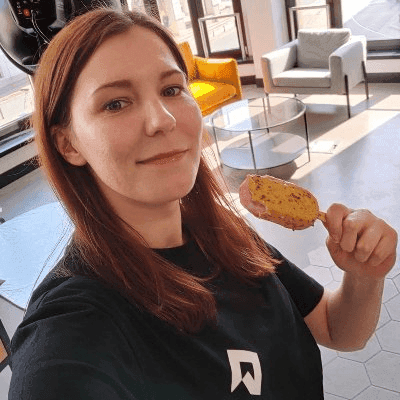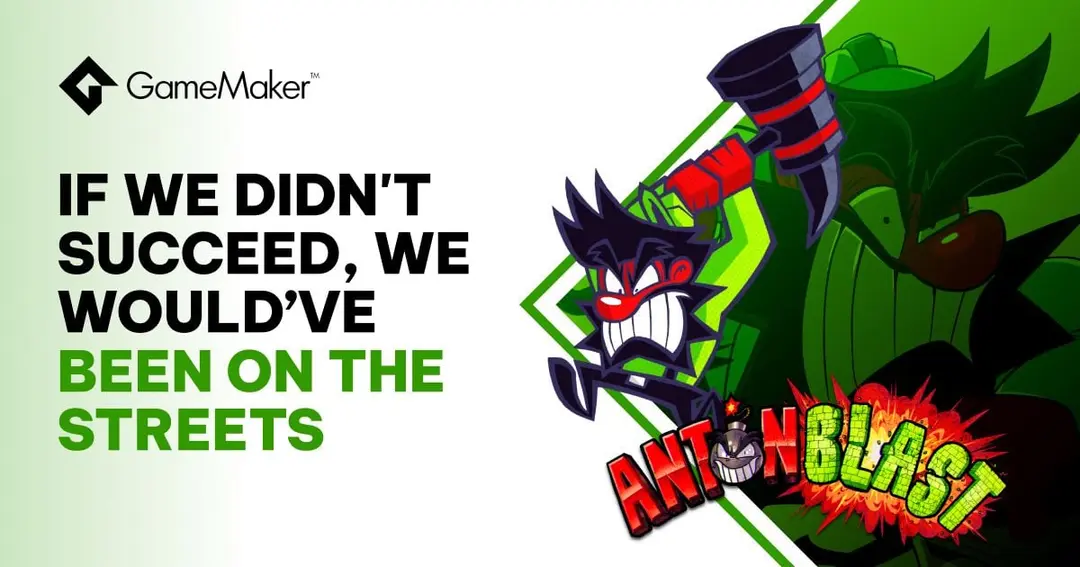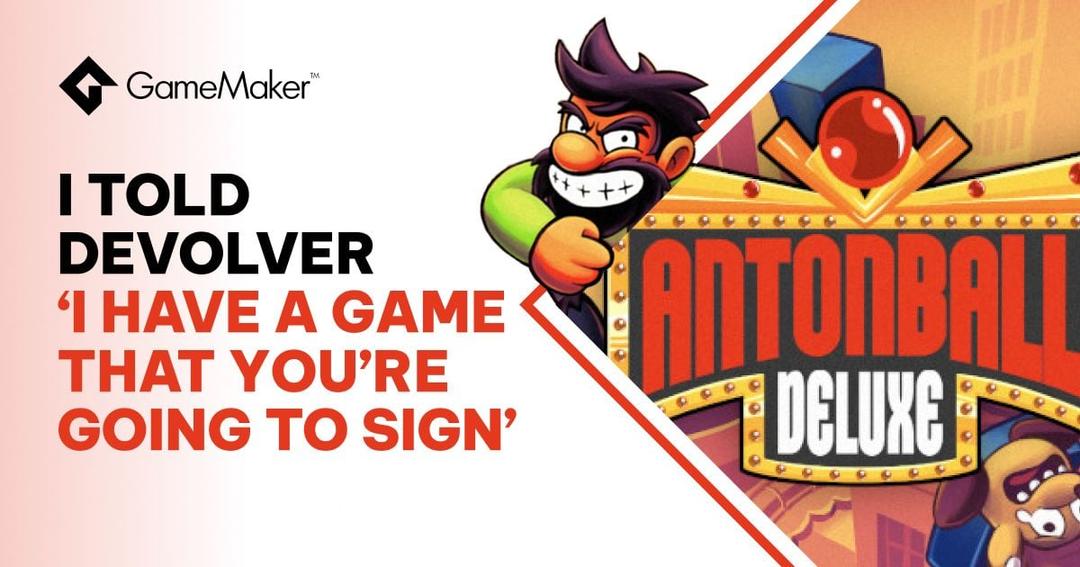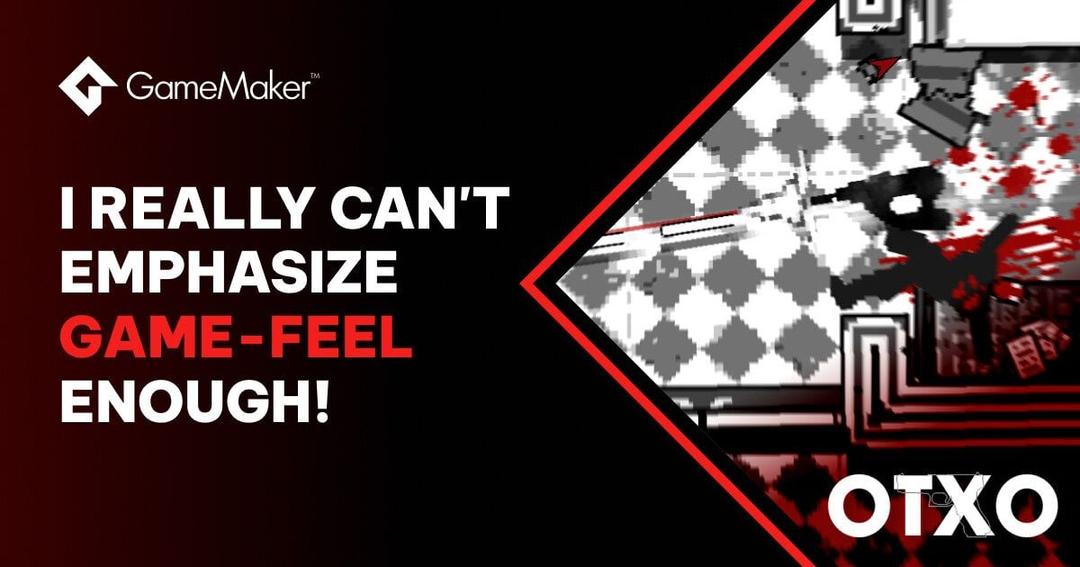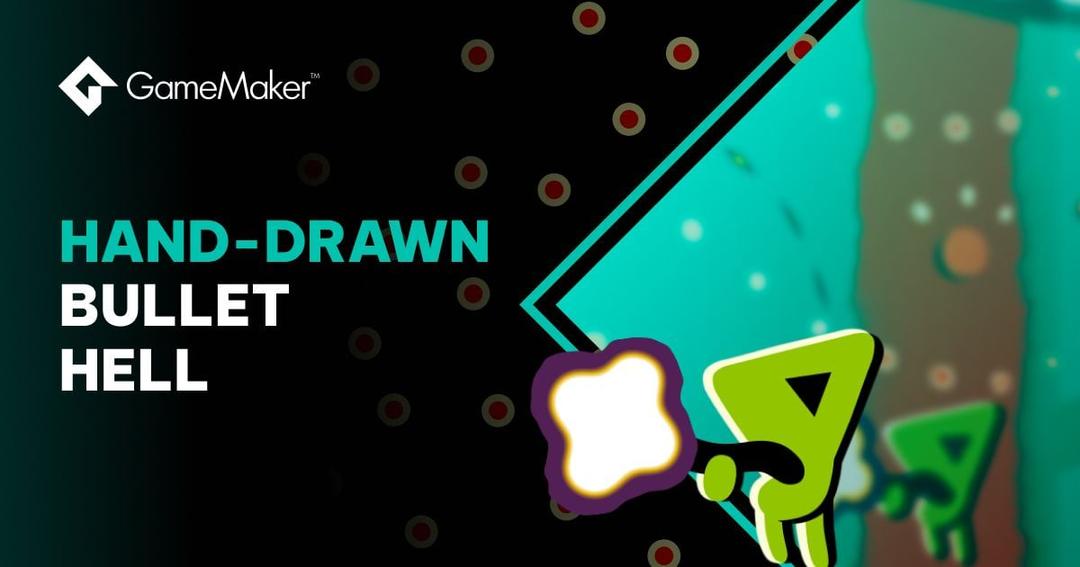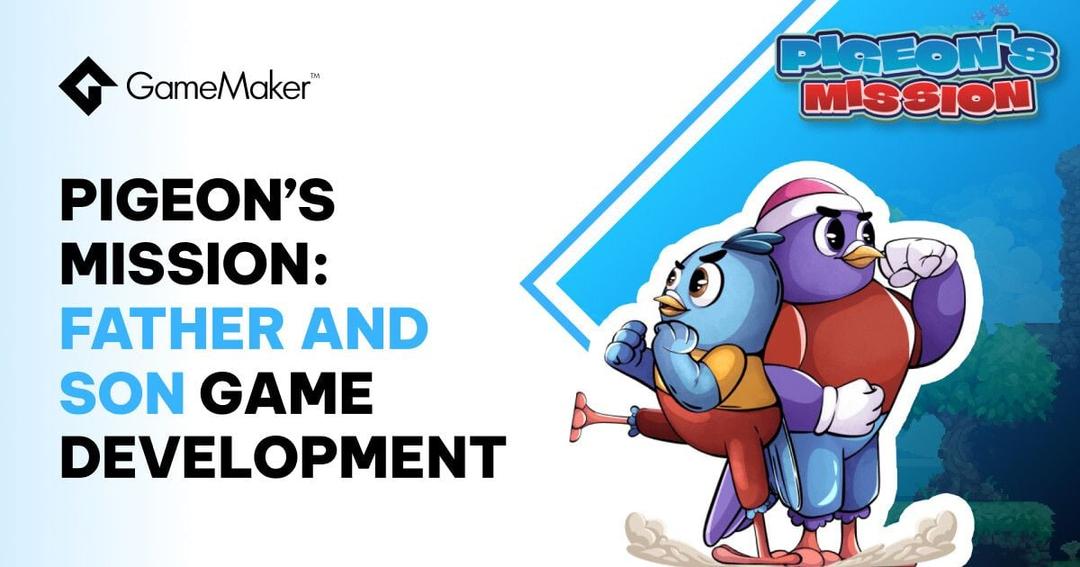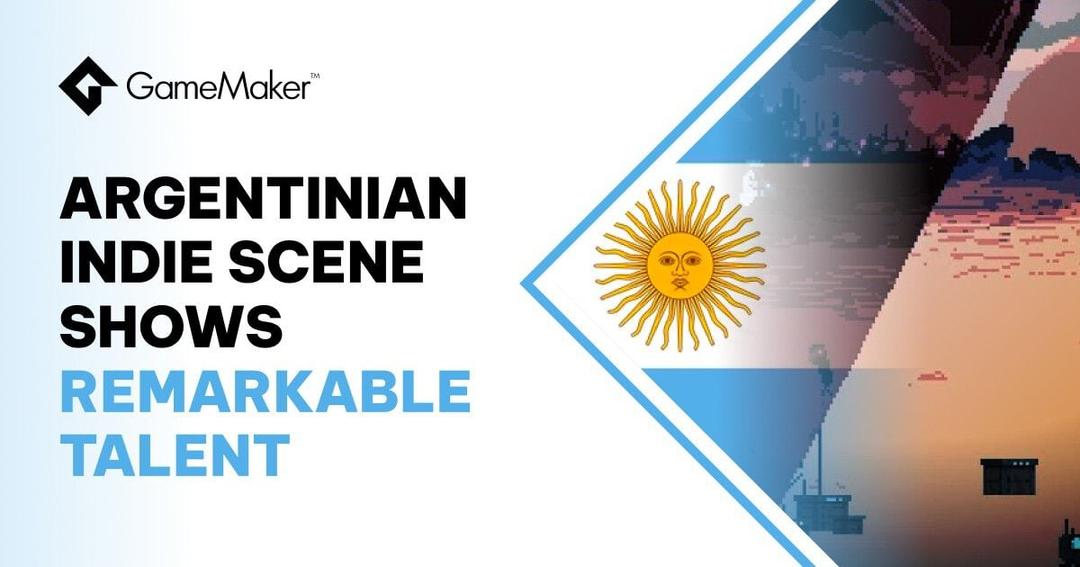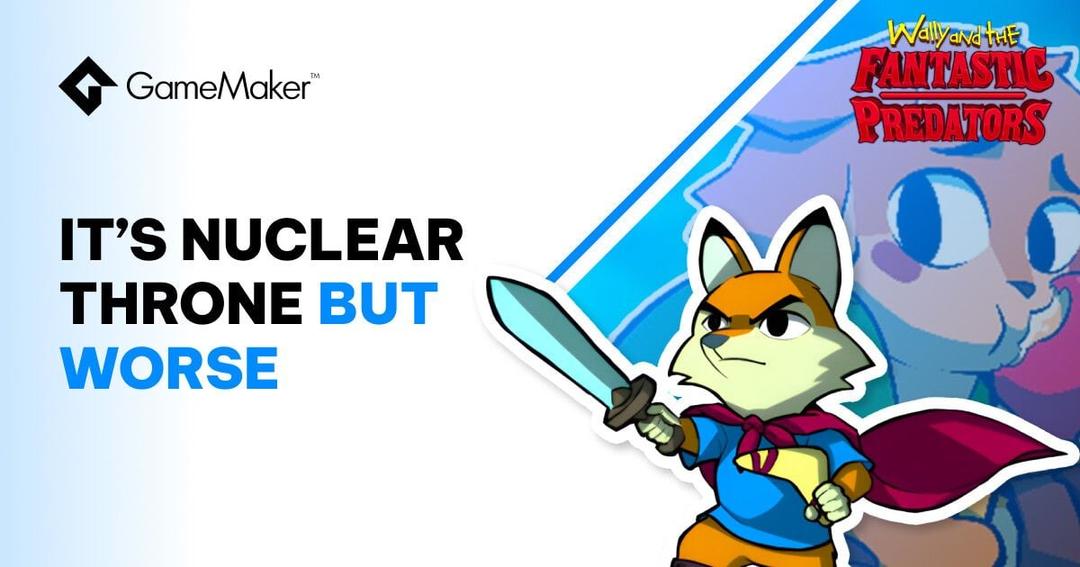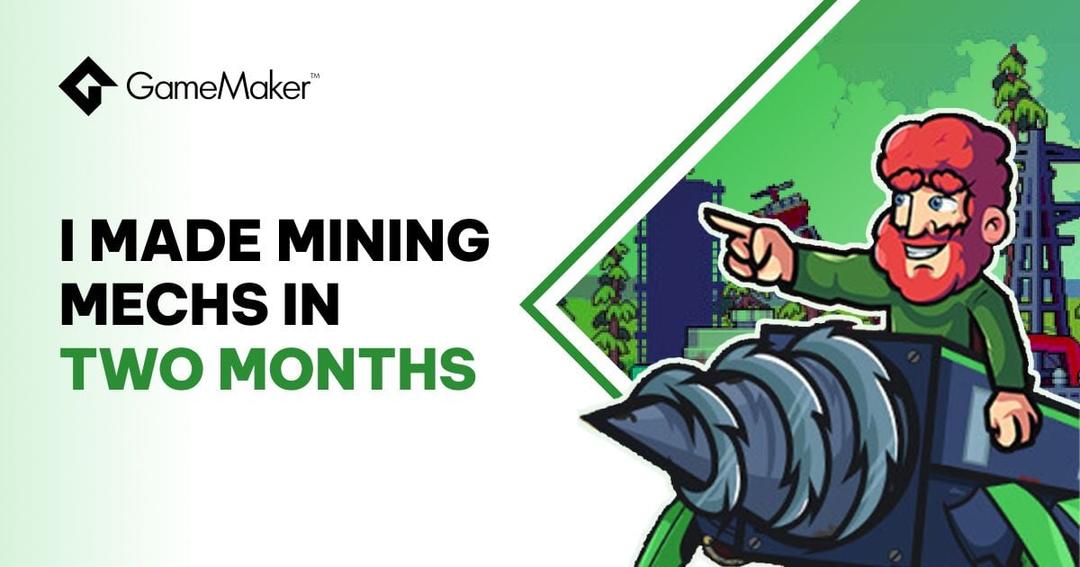Peglin Developers: Switching from Unity to GameMaker
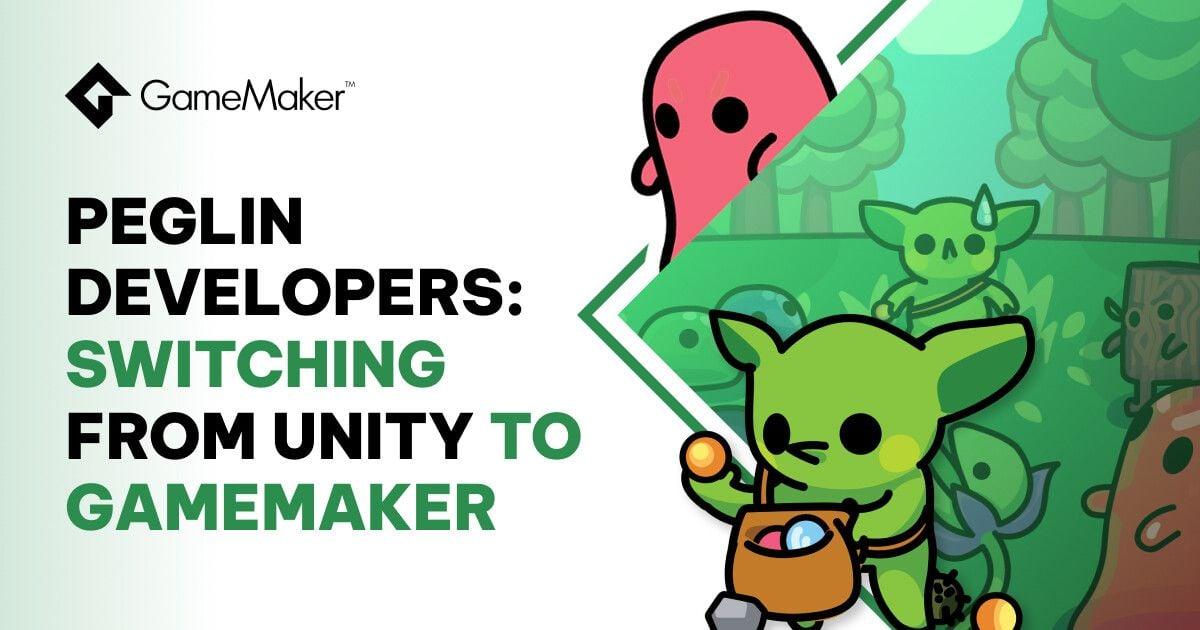
Dylan Gedig and May Gardens, known better in the indie space as Red Nexus Games (RNG), created the dangerously addictive pachinko roguelike Peglin, where you seek payback on a greedy dragon for stealing your gold.
Dylan and May tell us where the idea of a pachinko-inspired game came from, the challenges and benefits of switching from Unity to GameMaker, and the secret strategies for defeating the dragons of Peglin.
What made you interested in game development?
Dylan: I've always been keen on storytelling, and originally I wanted to be an author. I was enchanted by games like Fallout 2 and 3, and The Elder Scrolls (mostly Oblivion), and the way they told stories in these really engaging situational ways.
It made me want to get into games writing and world building, but when looking at the entry-level jobs, it looked like everything needed a lot of experience already.
I figured I could try and teach myself how to make my own small games to start building a portfolio, and that's when I discovered that I loved the entire process of designing and developing my own games as a solo/indie dev!
May: I started off with awful board games that I forced my parents to play. I saw an ad for GameMaker in a children’s magazine in 2002 or 2003, but I bounced off of it back then.
I found myself drawing mazes with the Microsoft Word line tool and moving images around in them, then made ‘Choose your own adventure’ games in Powerpoint.
Thankfully I found GameMaker again in 2007 or so, and have been mostly with it ever since.
How did your career in game development start?
Dylan: I started learning how to make games with C++ in 2010 and started shipping my first tiny games in Flash in 2012.
2015 is when I started to get a bit more serious about going indie and started my own company. Me and May teamed up to release our first big commercial attempt in 2016, Night Bullet Arena, which was made in GameMaker.
Unfortunately it didn't make enough money for us to continue being full-time indie devs, so we amicably went our separate ways. I got a full-time job as a programmer at a local game studio, and on the side created the game that I'm now most known for - Peglin!
Peglin is purposefully very lighthearted and silly, which was something I really needed at the time. It started to really take off with streamers and their audience, and so I eventually got brave enough to quit my day job, and made another full-time attempt at a commercial release, which thankfully paid off this time!
Its success allowed me to hire some people to help, including bringing May back to utilise her design skills.
We're now getting to the final couple of months of wrapping up Peglin development and getting it to 1.0. We're about to announce our next game, which is a project that May has been working on for the past couple of years before re-joining us - Fowl Damage.
What games have you worked on?
Dylan: The one that most people would know is definitely Peglin, but I'm also extremely proud of our first attempted commercial indie release, Friday Night Bullet Arena.
I've also worked as a developer on some bigger Flash games that some people might remember, like War Commander and Crusaders of the Lost Idols, which was later developed into the extremely successful D&D-licensed Idle Champions of the Forgotten Realms.
Unfortunately I'm not officially credited on that game!
May: Since releasing Friday Night Bullet Arena in 2016 with Dylan, I’ve worked on Fowl Damage, spent some time on a trading card game that never saw the light of day, and then went back to Red Nexus Games to help out with art and design of Peglin.
There’s been a liiiiiiittle bit of tinkering on the side, but for the most part it’s just been buffing up Peglin’s UI, helping with a few orbs and relics, and the occasional spreadsheet.
I’ve always been a platformer dev so it’s been fun to work on a game with data that I actually get to make spreadsheets about.
Before that there were dozens and dozens of game jams, small projects, and some real early work on the old Yoyo Games Sandbox.

Peglin
How would you describe Peglin?
Dylan: I usually describe Peglin as a ‘Pachinko Roguelike’ or a ‘Pinball Roguelike’, if the first description draws blank stares.
It's a roguelike deckbuilder, where instead of collecting cards you're collecting different pinballs that all have different stats, special effects, and even different physics properties.
You can find special relics that really mix up the gameplay and make every run different from the last, and then you bring it all together to use the power of physics to defeat enemies in JRPG-inspired turn-based combat.
There's a lot going on, but I promise it's pretty simple and approachable when you see it in motion!
Where did the idea for mixing pachinko with a roguelike come from?
Dylan: Peglin started at a game jam where the theme was ‘Fall’.
Originally it was going to be pretty brick-breaker-y, but it was definitely more interesting bouncing off of circles instead of squares. We started to look to pinball and Peggle for inspiration as well.
At the end of the first day, we were pretty happy with the core physics gameplay, so the second day we thought about games like Puzzle Quest and You Must Build a Boat to conceptualise how puzzle gameplay could affect the game.
By the end of the jam we had a very rough prototype, which we originally called Goblin Drop!
What makes Peglin stand out from other roguelikes?
Dylan: I think the core idea hadn't been done too much at the time. A lot of games that were inspired by Slay the Spire were still focused on the different things that you could do with cards, and there haven't been many titles since where you're building a deck of objects that's a little more physical and a little less abstract than cards.
There was also something really poignant about us making a game that started production in earnest because of the Covid lockdowns. It steered the game toward something lighthearted and friendly, which is what we needed to distract ourselves at the time. I think it resonated with people.
The final piece that has helped us a lot is that we accidentally made a very streamable game.
The randomness from the deckbuilding aspect combined with the unpredictability of the physics, and the fact that the entire game is turn-based - it lets streamers make moves and then engage with chat.
That led to the game getting a lot of airtime, and we definitely wouldn't have a community without them!

Peglin
Why did you decide to switch from Unity to GameMaker?
Dylan: I'll start with the reason why I switched from GameMaker to Unity after our last project.
It was mostly because the majority of the studios in our town were starting to use Unity. It was a big mobile games city, not a ton of PC or console development was happening there, so I felt that I needed to skill-up in Unity if I wasn't going to be running my own studio.
Unity was a pretty good fit for Peglin's development, but it certainly could have also been built in GameMaker. It's also become pretty clear both from recent events and the overall direction of Unity over the last couple of years, that their focus is no longer on ‘democratising game development’.
We've known for a while that our studio would most likely move away from Unity for our next project. When May, who had been continuing her own indie development using GameMaker since we parted ways in 2017, showed us the game that she had been building and completely blew us away, we knew we had to help bring that game to the rest of the world!
May: We were going back and forth a bit about whether to port Fowl Damage to another engine, since I’m the only one at Red Nexus Games with a lot of experience in GameMaker.
There was so much work done on the game already, and I’m really glad we decided to stick with GameMaker for this project. It’s nice to be in an environment that’s so familiar to me.
What was the most difficult part of changing engines?
Dylan: For me it's losing the muscle memory you’ve built up project after project, year after year.
It's certainly possible to create incredible games in any of the major engines, but it can be frustrating when you switch and you have to relearn basic techniques, like how to nicely transition between levels or how to lerp things for smooth movement and effects.
Essentially, it takes longer to reach the same levels of polish you're used to. Not having access to the Asset Store assets you've come to know and love is a little sad as well, especially when you've developed relationships with the creators of some of those assets, even if the engine you're moving to has that functionality built into it.
May: After using GameMaker for over a decade, hopping in to help out with Peglin, and having to learn a whole new environment, I was grumpy for a while!
Going back to GameMaker for Fowl Damage with some new habits, good and bad, will be exciting. I’m looking forward to it.
Is there anything that frustrates you about GameMaker?
Dylan: Nothing major on this project so far, though my actual development work has only consisted of poking around and refamiliarising myself with the engine.
I do think I got some gray hairs from trying to port our last game to the Xbox One though, using one of the first versions of GMS 1.4, and then a custom version of the engine provided by the GameMaker team.
Submitting our game to CERT to have it bounced back from a new requirement that the engine didn't support yet, and having to bounce back and forth with the eight hour time difference with the GameMaker office was definitely a memorable experience in my career.
Thankfully indies that I've talked to have told me that the exports have improved a lot, but we might still hire a porting company just in case!
May: Engine-made sprites and other assets having long true file names and everything being in its own folder.
Something I really enjoy with the workflow on Peglin is the parity between the engine’s project view and the actual file-system view.
Also I’m sure this is asked all the time, but I would love a patcher/version manager.
What do you find most challenging about being an indie game developer?
Dylan: After the success of Peglin, the biggest challenges have been community management and managing expectations.
Most of our players are pretty content getting Peglin updates when they're ready and they know that we're still a small team, but there's a vocal minority in our player-base that sees how popular Peglin has gotten and expects quality content to increase exponentially.
We've even had a player ask if we were going to convert the game from pixel art to ‘real art’ now that we were making money!
Before the success of Peglin, it was definitely the unpredictability. You never really know if a game that you've poured months or years of your life into is going to be enjoyed or even seen by anybody.
You don't know if it’ll make enough money for you to make another title, or even to earn you a minimum wage on the hours that you’ve put into it! Even with the community that we've built up for Peglin, it's almost impossible to say how our next game will do, especially since it's in totally different genres than Peglin.
May: Working your own hours is certainly a fantastic boon. I haven't had to worry about when to book an appointment in years.
But the discipline required when your office is your bedroom, when your work PC is also your gaming PC - it can be tough. You gotta still get out of the house now and again!
There’s also the trade-offs of being a solo developer. Yes, you get to make every decision, you get to enact your exact vision, but you also have to make. Every. Single. Decision.
You have to figure out what your vision is. You have to enact every part of it. How should my game sound? I don’t know, I’m not a sound designer, but I am the sound designer. So I’ve gotta figure it out.
It was a great relief to join the team on Peglin and get to actually work alongside other developers. Inspire each other. Surprise each other. It’s a great team and I’m excited to have a little bit of that support for Fowl Damage too.
I just want to keep making games and keep paying the bills. That’s about it!
What is the best part of being an indie developer?
Dylan: The freedom!
Even though I live in the middle of nowhere now, our game still gets to be enjoyed by players from all over the world, so freedom of location is a huge benefit of our industry.
While working on Peglin, I moved cities to be closer to my family and to live in a smaller town, closer to nature (and a lake!). I was able to keep working, since we didn't have an office and were mostly just working from home anyway.
Freedom of time is another huge bonus, and it's especially important to someone like me who is way more productive in the evening. I can take off in the middle of the day and get some fresh air whenever I need it.
I also appreciate being able to make a direct impact on players' lives. In the past I've been working on F2P games, and in those jobs it really didn't feel like we were out there to make a positive impact on player's lives.
With Peglin, we've heard from so many people that the game has helped calm them down from anxiety attacks, get them through hard times (including military deployments), and has brought them closer together with their friends and families.
Knowing that those solo late-night hours where I was punching away at the game would eventually result in something that would resonate with players, that would really mean something to people is just such an incredible, incredible feeling!
What are your plans for the future?
Dylan: For a while after Peglin exploded, we were considering the possibility of making our next game some crazy massive thing, but we've thankfully had enough time between the Early Access release and getting Peglin into 1.0 that we've cooled our jets a bit.
We’re going to continue doing what we're good at for our future games: small(ish), experimental, simple games with a focus on fun gameplay.
We're going to keep the team small, since that's really where a lot of the strengths for indie devs comes from. If we get too experimental and make games that don't really resonate, that’s Okay. We can take a few risks without having to worry too much.
What do you do when you’re not busy developing your games?
Dylan: I like getting outside since the majority of my day is spent working on Peglin in one way or another (why are there so many emails in game development!). I have a great puppy named Brisco, who loves to explore, so I like getting her out to new places.
I also love reading everything, from business, management, finance, biography, and history books to fantasy, sci-fi, horror books, and of course I still love playing games - usually JRPGs or anything multiplayer if I'm playing online or locally with friends.
May: Big surprise, there’s a lot of gaming.
I play Final Fantasy XIV (Saint of the Firmament and Rank #5 Fisher btw!) and have been dabbling in Oldschool RuneScape, which are certainly two grindy games.
Away from the computer, I play piano and guitar, and have recently gotten into sports - mostly playing soccer, and a bit of basketball.
Turns out sports are also games and they’re pretty fun!
Do you have a secret strategy for winning in Peglin?
Dylan: Nothing concrete yet! My style is very much ‘throw different things at the wall and see what sticks’, and it usually results in each new update having some horrifically broken unbeatable strategy. It's a good thing we're not working on a competitive game!
Thankfully that's been part of the fun for some of our Early Access players and they've been really good at sharing all of the different combinations of content (because there's just so many now that we'd never be able to test each of them manually).
It's been a really fun game to continue to work on as well (even with the fourth birthday of the first game jam coming up later this month!).
That said, right now the Balladin is definitely the most powerful character by a decent margin, so if you're looking to have an easier time conquering the Cruciball, that's definitely the character to go with until we do a rebalance!
May: A secret strategy? I feel like Concentration was slept on for a long time, but it’s been getting a lot of recognition these days, probably in part thanks to the dragon boss’ pegboard.
The ability to snipe special pegs is just such a great utility to keep in your back pocket and I also love taking it with a Defresh Potion. All the piercing damage makes way for so many Morbid orbs, and easy refreshes (if you still have any left). Throw in a Bag of Orange Pegs for the extra special strats.
